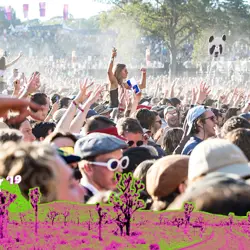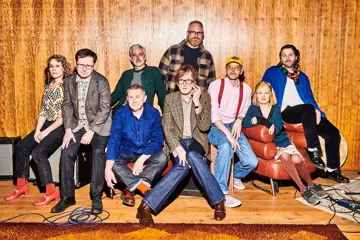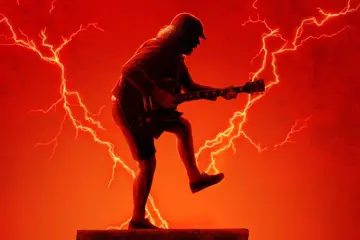 Splendour In The Grass
Splendour In The GrassUp until recently, Australia has been able to stomach the steady flow of festival cancellations from the last few years. But this year, things changed. Groovin The Moo was a big blow, but it was the cancellation of this year’s Splendour In The Grass that really hit home.
READ MORE: Why Governments Should – Or Shouldn’t – Fund More Music Festivals
The blame can be pointed in many directions: inflation, insurance costs and the weak Australian dollar forcing ticket prices to hike, the cost of living crisis, headliners not having mass market appeal, slow early ticket sales to drive cashflow... The list goes on. But I want to offer another point of view – one that isn’t being talked about anywhere near as much as it should be.
Music is tied deeply to emotions. It’s a science – there’s no disputing it. This has been obvious when we reflect on the “live music successes” of the last few months. Whether it was the nostalgia of seeing blink-182 for 30- and 40-somethings, the FOMO of Fred again.. or the Taylor Swift phenomenon, all of these commercial successes have a deep layer of emotional purchasing – the kind that regardless of the cost of groceries or how much a ticket cost, people dig deep into their pockets and make it work.
Without the emotional investment, there will be no financial investment. And that emotional investment starts with education.
The benefits of children learning music in primary school are indisputable, which is why music is a compulsory part of all curriculums in Australia. A well-rounded music education not only positively impacts children’s cognitive, social, emotional and physical development, it is the catalyst to an admiration and respect of the artform and the undeniable richness it contributes to the fabric of our culture.
Whilst music education in schools is centred around playing, performing, composing and listening, it will be the minority that develop their craft, becoming songwriters, instrumentalists, performers or be driven to work as part of the industry itself. And that is okay! What we need, as a society, is the majority to emerge with a level of respect for the artform who will become fans.
Music education has been deteriorating in Australian schools for decades now and arguably, this lack of emotional investment into our broader music, arts and cultural society is just starting to cut through. The 18-to-25 year olds of today statistically experienced the least number of opportunities for music education in the classroom. And as music education in Australian schools continues to deteriorate (schools with music teachers has dropped from 23 percent to 16 percent in the last decade), things are going to get worse before they get better.
To offer a point of comparison, Finnish music education is the best in the world. Music is a comprehensive part of the day-to-day education of every student in Finland from early childhood through to high school. In 2022, 5.5 million people lived in Finland and the overall value of their music industry was valued at the equivalent of just over $2 billion AUD – pretty impressive for a country of that size! But what is most fascinating is that they include music education as a core economic sector of the greater music industry. By doing this, they are actively recognising that the industry couldn’t function without it.
If we want the live music sector to continue to grow, we need to reset from the ground up. Primary school is the most important point where intervention needs to happen and happen soon. Primary school students are the perfect age to absorb information from the world around them. The later we leave it, the harder it gets – just ask any high school music teacher who has had a cohort of students who didn’t do music in primary school.
If successful commercial enterprises who run festivals and events deem them not to be viable and are forced to cancel, that is okay. These decisions would not be made lightly and instead of placing short-sighted blame or looking for band-aid solutions (like government handouts), we all need to look deeper and begin solving the problem with a longer-term view.
If we want festivals in our future, we need emotionally invested fans. How do we create more fans? We invest in education. It’s as simple as that.






